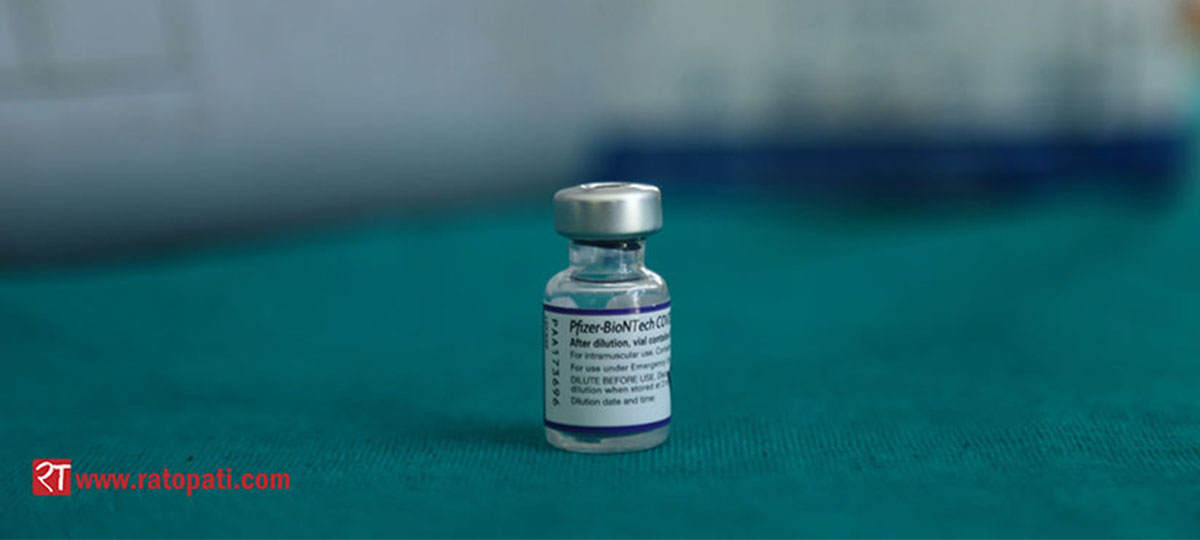Amnesty International calls for vaccine equity: Only four percent of people living in low-income countries fully vaccinated
It accuses the pharmaceutical companies of monopolizing technology, blocking and lobbying against the sharing of intellectual property, charging high prices for vaccines and prioritizing COVID-19 vaccine supplies to wealthy countries.

KATHMANDU, Feb 14: Amnesty International has accused the pharmaceutical companies of monopolizing technology, blocking and lobbying against the sharing of intellectual property, charging high prices for vaccines and prioritizing COVID-19 vaccine supplies to wealthy countries.
According to Amnesty International, as many as ten billion doses of COVID-19 vaccines were produced last year, more than enough to reach the 40% target of global vaccination set by the World Health Organization (WHO) for the end of 2021 but only four percent of those living in low-income countries had been fully vaccinated by the end of the year.
More than 1.2 billion people in low and lower-middle income countries could have been vaccinated by the end of 2021 if high-income countries and vaccine makers took their human rights obligations and responsibilities to heart, reads the press statement issued by Amnesty International.
According to the AI report, in 2021, Pfizer, BioNTech and Moderna projected revenues of up to US$54 billion, yet supplied less than two percent of their vaccines to low-income countries. Chinese companies Sinovac and Sinopharm delivered just 0.4 % and 1.5% respectively of their vaccines to low-income countries.
Johnson & Johnson’s and AstraZeneca’s records on distribution were better – with 50% of their stock reaching low and lower-middle-income countries (with many of these doses provided as “donations” from upper-income countries, not as part of sales agreements). However, both companies still refuse to share their technology and intellectual property through World Health Organization-coordinated initiatives and are now abandoning their not-for-profit pricing model.
Further findings provided by Airfinity, a science and analytics company, up to 31 December 2021, includes that AstraZeneca produced just under 2.4 billion vaccine doses in 2021 and supplied 1.7% of these to low-income countries and 70% to lower-middle income countries, an increase on the previous assessment.
Johnson & Johnson produced just over 300 million doses in 2021 and delivered 20% of these to low-income countries and 31% to lower-middle income countries, a significant increase on the previous assessment.
Moderna produced 673 million doses in 2021 and delivered 2% of these to low-income countries and 23.5% to lower-middle income countries, a significant increase on the previous assessment, but still short of what is required.
Pfizer/BioNTech produced 2.4 billion doses in 2021 and delivered 1% of these to low-income countries and 14% to lower-middle income countries, a slight increase on the previous assessment, but well below Amnesty International’s 50% target.
Sinopharm produced just over 2.2 billion doses in 2021, most of which were supplied domestically within China. The company delivered 1.5% of its doses to low-income countries and 24% to lower-middle income countries, short of what is required for a fair distribution of its vaccines.
Sinovac produced over 2.4 billion doses in 2021, most of which were supplied domestically within China. It delivered 0.4% of its doses to low-income countries and 20.5% to lower-middle income countries.
Amnesty International has also urged on companies to share intellectual property by issuing open and non-exclusive licenses or participating in the COVID-19 Technology Access Pool (C-TAP), established to support the sharing of open and non-exclusive licenses, publicly disclose all terms and conditions, and price vaccine doses so profit does not stand in the way of access to COVID-19 vaccines.









Leave Comment